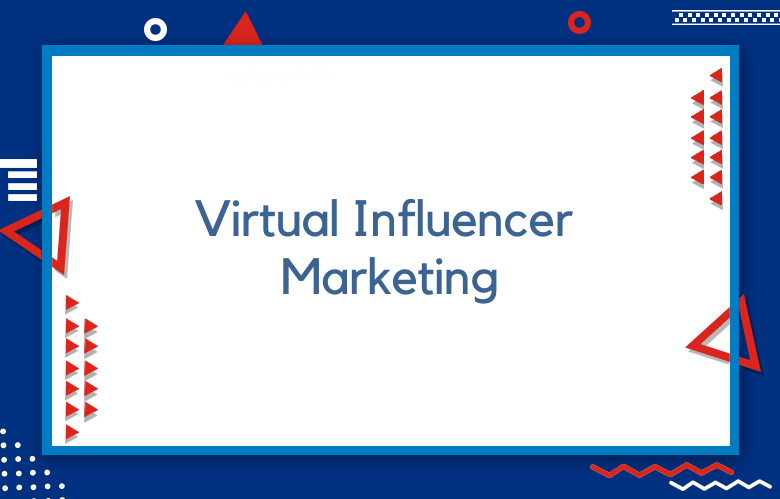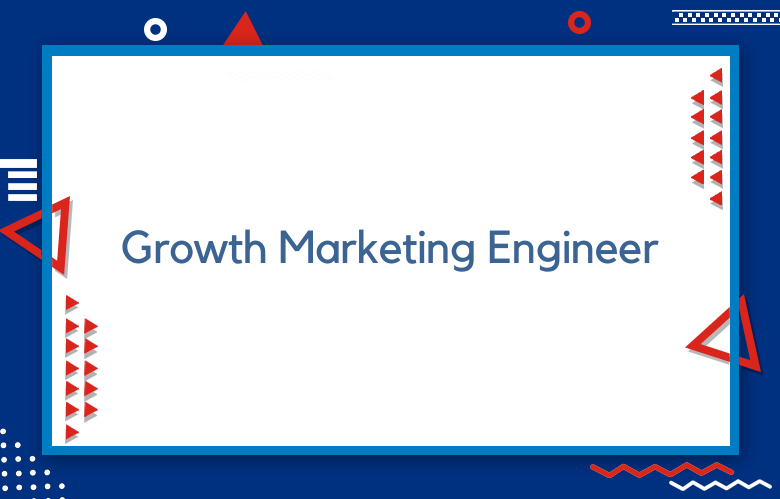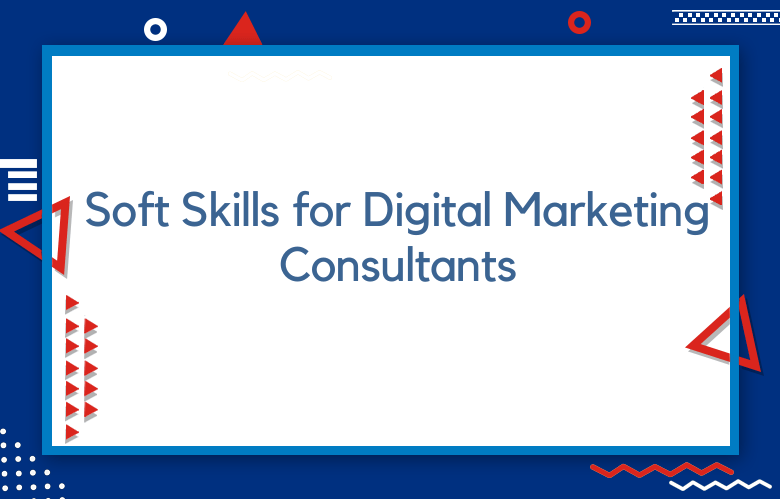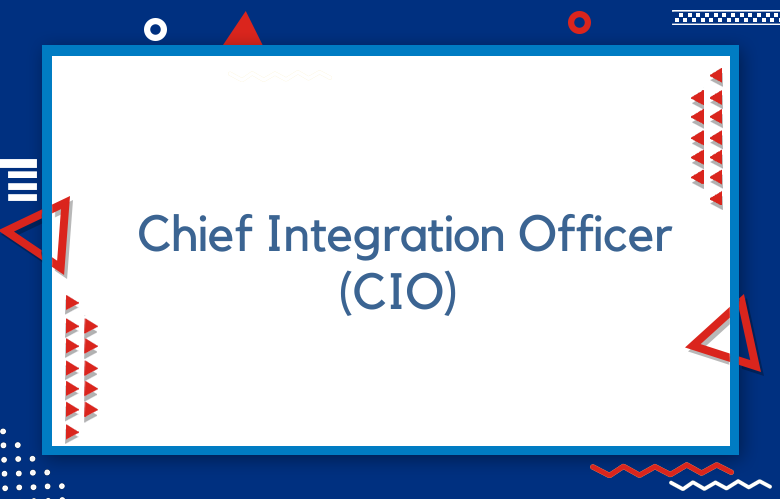Virtual Influencer Marketing using AI: AI-Driven Virtual Influencers

In today’s digital age, social media influencers have become one of businesses’ most powerful marketing tools. When used effectively, influencers can help boost a brand’s reach and reputation, leading to increased engagement and sales.
However, influencer marketing can sometimes be expensive and time-consuming, which is where virtual influencers come in. Virtual influencers are AI-generated characters that can be used to promote products, services, and brands.
They are becoming increasingly popular, and it’s easy to see why. We’ll look at AI-driven virtual influencers and how businesses can use them in marketing.
Marketing trends are significantly changing, and the world of advertising is revolutionizing. Gone are the days when celebrities and influencers are the only face of advertising campaigns.
The marketing landscape has entered a new sphere with the introduction of technology and artificial intelligence. One of the latest marketing trends is Virtual Influencer Marketing, a component of AI-driven Virtual Influencers.
Who are Virtual Influencers?
Virtual Influencers are computer-generated personas designed and developed to look and behave like real people on various social media platforms.
These advanced virtual characters combine artificial intelligence (AI), machine learning, and other cutting-edge technologies to generate content miming human behavior, emotions, and personality traits.
Virtual Influencers have gained immense popularity in recent years, with some of the top virtual influencers earning millions of followers on social media. Companies, agencies, or individual creators usually create these digital personas using 3D modeling software and sophisticated animation techniques.
One of the primary advantages of virtual influencers is that they offer brands a high level of control over their image and messaging.
Virtual influencers are not limited by physical constraints, meaning they can appear in any location, wear any outfit, and promote any product without the restrictions of real-world situations.
AI-Driven Virtual Influencers
AI-driven virtual influencers are the latest trend in the world of digital marketing. These virtual characters are created using artificial intelligence, advanced digital tools, and techniques to deliver content that resonates with their target audience.
The idea behind creating virtual influencers is to capitalize on the rising engagement of people with social media platforms and to leverage this audience to promote various brands.
These virtual influencers are designed to have unique personality traits and distinctive features, carefully crafted considering the target audience.
They are often given a backstory, which adds to the richness and authenticity of their persona. Some virtual influencers even have a backstory that mirrors an actual human, creating an emotional connection with their followers.
These visually appealing digital characters can interact with their followers in real time. They can respond to comments, answer questions, and engage their audience in a conversation.
This level of Personalization has made these virtual influencers a powerful marketing tool, as they can help brands create a more intimate relationship with their audience.
Virtual Influencer Marketing Benefits
Virtual influencer marketing is a relatively new approach that has recently gained popularity. Unlike traditional influencer marketing, virtual influencers are CGI creations that do not exist in the real world.
Still, they are designed to appear human-like and interact with their audience through social media platforms. Brands are finding virtual influencer marketing to be beneficial in many ways.
One significant advantage of virtual influencer marketing is that virtual influencers allow brands to tap into otherwise difficult or inaccessible markets.
Virtual influencers have the potential to connect with global audiences on a more personal level and are not restricted by geographical location. As a result, brands can expand their reach and engage with audiences they would have otherwise been unable to reach.
Another significant benefit of virtual influencer marketing is the brands’ level of control when working with virtual influencers. Since virtual influencers are computer-generated, brands can craft their message and brand narrative to ensure consistency and reliability of messaging.
Virtual influencers do not have a personal life outside social media, eliminating traditional influencer challenges like personality and scheduling conflicts.
Ethical Implications of Virtual Influencers
The rise of virtual influencers has raised various ethical concerns in the marketing industry. With the increasing use of AI and social media, virtual influencers have entered the marketing world due to their potential for cost savings and higher engagement rates than their human counterparts.
However, with the use of virtual influencers, questions have been raised about transparency and disclosure in advertising. Unlike human influencers, virtual influencers are not real, which raises questions about their authenticity and credibility.
Consumers have the right to know if they interact with a virtual influencer and should be informed if a brand sponsors the influencer.
Moreover, using virtual influencers to promote unhealthy body standards or perpetuate stereotypes can also lead to negative societal impacts and possible psychological harm to consumers.
Using AI technology to create flawless body images can contribute to body shaming and unrealistic beauty standards and negatively impact body image and self-esteem.
AI-powered Virtual Influencer Campaigns
AI-powered Virtual Influencer campaigns are a progressive approach to digital marketing that has taken the industry by storm. As the name suggests, a virtual influencer is a computer-generated influencer who interacts with the audience on social media platforms.
Unlike real-life influencers, virtual influencers provide a controllable and unequivocal image that can be tailor-made to fit the brand’s messaging.
The use of advanced AI algorithms sets AI-powered Virtual Influencer campaigns apart from traditional influencer campaigns.
These algorithms enable the virtual influencer to learn from interactions with the audience and adapt its content accordingly. The virtual influencer’s algorithms can analyze audience engagement patterns to create more personalized and targeted content.
Virtual influencers never tire, get sick, or require payment. Their longevity far outruns their human counterparts, making it a cost-effective marketing solution for brands.
The Authenticity of Virtual Influencers
Virtual influencers have been rising recently, gaining immense popularity on social media platforms such as Instagram and TikTok.
These computer-generated virtual avatars have created unique identities, accumulating millions of followers and lucrative brand deals. However, with the increasing prevalence of virtual influencers, the issue of their authenticity has become a matter of concern, leading to a significant debate.
One of the primary concerns regarding virtual influencers is the need for more transparency surrounding their existence. Unlike human influencers, virtual influencers are not natural persons and are instead computer-generated, making it difficult for their followers to distinguish between reality and fiction.
This lack of transparency raises issues related to the trustworthiness of virtual influencers and their content, making it difficult for brands to rely on them for their marketing campaigns.
How AI Shapes Virtual Influencers
Artificial Intelligence (AI) is profoundly impacting the world of virtual influencers, transforming how brands build their presence on social media.
Virtual influencers are computer-generated characters designed to interact with humans on digital platforms like Instagram, YouTube, and TikTok. These characters have become an increasingly popular marketing tool for brands looking to reach and engage their target audience.
One of the key advantages of virtual influencers is that they offer brands a level of control that human influencers can’t provide. With human influencers, brands must rely on the influencer’s personal preferences, opinions, and schedule.
However, with virtual influencers, brands can fully control the character’s personality, style, and messaging. This allows brands to present consistent images and messages across all their marketing platforms, ensuring a cohesive brand identity.
Ethical Considerations in AI-Driven Influencer Marketing
The rise of artificial intelligence (AI) has dramatically impacted the marketing industry, especially influencer marketing.
With the help of AI, targeting and reaching the right audience has become easier than ever before. However, this technological advance also raises ethical considerations that must be considered.
One of the primary ethical concerns in AI-driven influencer marketing is the potential for deception.
AI algorithms can create hyper-realistic images and videos, making differentiating between genuine and fake content difficult.
This has led to the rise of deepfakes, which are videos or audio recordings that have been manipulated to portray someone falsely.
For instance, a brand may employ an AI influencer that looks and sounds like a natural person but is entirely computer-generated.
This can be misleading and manipulative, as consumers may believe they are engaging with a natural person when they are not.
AI algorithms can mine personal data and create targeted advertisements tailored to an individual’s interests and preferences, making distinguishing between authentic content and sponsored posts challenging.
Crafting Compelling Stories for Virtual Influencers
Virtual influencers have emerged as a new social media and marketing phenomenon in recent years.
These computer-generated virtual characters have gained a large following and have become influential brand ambassadors for companies and organizations.
One critical challenge of creating content for these virtual entities is crafting compelling stories that resonate with their audience and drive engagement.
Crafting compelling stories for virtual influencers requires creativity, strategic thinking, and technical expertise.
Unlike traditional influencer marketing, where an individual influencer’s personality and personal brand form the center of the narrative, virtual influencers require a more nuanced approach.
A virtual influencer is not authentic, meaning their backstory and persona must be carefully constructed to be believable and engaging.
Virtual Influencer ROI: Measuring Success with AI
With the rise of social media, influencer marketing has become a popular way for brands to promote their products and services.
However, with the increasing awareness of influencer content’s staged and orchestrated nature, brands are turning to a new type of influencer, the virtual influencer. As a result, measuring the success of virtual influencer campaigns has become a pressing concern for marketers.
Artificial intelligence (AI) provides a solution to measuring virtual influencers’ return on investment (ROI). By leveraging AI algorithms, brands can analyze various metrics such as engagement rates, sentiment analysis, conversions, and attribution to determine the effectiveness of their virtual influencer campaigns.
This data-driven approach provides a more accurate assessment of campaign success and helps brands identify areas for improvement and optimize their strategies.
AI-Enhanced Personalization for Virtual Influencers
AI-enhanced personalization for Virtual Influencers is a cutting-edge technology that utilizes artificial intelligence algorithms to create personalized content for virtual influencers.
This technology has revolutionized the world of influencer marketing, where virtual influencers’ popularity has surged in recent years.
With AI-enhanced personalization, brands can tailor their campaigns to specific target audiences based on age, gender, location, and interests.
This level of Personalization ensures that the content is relevant to the audience, increases engagement, and improves the overall effectiveness of the marketing campaign.
Virtual influencers, also known as digital humans or computer-generated characters, are becoming increasingly popular among younger generations.
These influencers are entirely artificial and exist only online, yet they have the power to persuade and inspire millions of followers worldwide.
With the help of AI-enhanced personalization, virtual influencers can now create customized content that resonates with their audiences, making them even more influential in the digital space.
Leveraging AI in Virtual Influencer Marketing
Over the past few years, virtual influencer marketing has been a trending topic in digital marketing.
Virtual influencers are computer-generated personas designed to look like real human beings, and they use social media platforms to engage with their followers, promote products, and shape their audience’s opinions.
One of the most significant advantages of using virtual influencers in marketing is that they provide brands with a more controlled and high-quality image.
These influencers are not subject to the same limitations as human influencers, such as sickness, bad moods, or personal problems, that could affect their ability to deliver quality content. As a result, virtual influencers can create better quality content more consistently and on demand at any time of the day.
Crafting Authentic Narratives for AI-Driven Influencers
The rise of artificial intelligence (AI) has ushered in a new era of digital marketing, where AI-driven influencers are becoming the norm. Brands increasingly leverage AI to create virtual influencers who resonate with their target audience and help boost their brand image.
However, crafting authentic narratives for these influencers is a complex task that requires careful consideration of the technology and the human element.
To create an authentic narrative for AI-driven influencers, it is essential to understand the target audience. Who are they? What are their likes, dislikes, and interests?
What are their aspirations? Understanding these aspects is crucial in crafting a narrative that resonates with the audience and establishes a strong emotional connection.
Another critical aspect of creating authentic narratives for AI-driven influencers is to define their personality and values. Just like human influencers,
AI-driven ones must have unique personalities that reflect the brand’s values and ethos. It is the personality and values that differentiate one influencer from another, and it is what draws the audience toward them.
Measuring Success: AI Analytics for Virtual Influencers
In recent years, virtual influencers have become a burgeoning trend in social media marketing. These computer-generated personalities are designed to embody the ethos and values of a brand and engage with consumers on a level that is both authentic and relatable.
However, with the increasing saturation of virtual influencers, measuring their success and evaluating their impact on a brand’s marketing strategy has become more critical than ever.
One of the most effective ways to measure virtual influencers’ success is through AI analytics.
By leveraging advanced technologies such as machine learning and predictive analytics, brands can gain deep insights into the performance of their virtual influencers across multiple channels and platforms.
This data allows companies to decide which influencers to continue working with and how best to allocate their marketing resources.
Personalization Strategies for AI-Powered Virtual Influencers
Personalization strategies for AI-powered virtual influencers (VIs) are critically important for their success in influencer marketing. With the rapid advancements in artificial intelligence, the capabilities of VIs are becoming more advanced and sophisticated.
As such, it is essential to understand how personalization strategies can be leveraged to optimize the performance of AI-powered virtual influencers.
One of the most fundamental strategies for personalizing VIs is to ensure they align with the values and interests of the targeted audience.
This can be achieved by gathering data insights about the audience’s demographics, interests, and behavior patterns.
These insights enable AI algorithms to generate personalized content that resonates with the specific audience, increasing influencer engagement rates.
AI-Powered Virtual Influencer Marketing Consulting
In the increasingly digital world, we live in, influencer marketing has become a pivotal tool for brands to reach their target customers through social media platforms.
With AI technology advancements, we have entered the era of virtual influencers. These computer-generated influencers have revolutionized the marketing landscape, bringing authenticity and creativity to digital marketing campaigns. This is where AI-powered virtual influencer marketing consulting comes in.
AI-powered virtual influencer marketing consulting utilizes cutting-edge AI technology to create and manage virtual influencers tailored to fit the brand’s unique marketing needs.
This new form of experiential advertising combines the power of social media with the appeal of virtual personalities, providing brands with a more direct and effective way to engage with their target audience.
With the help of machine learning algorithms, virtual influencers can provide unparalleled insights into consumer behavior, allowing businesses to make informed marketing decisions.
Trends for Virtual Influencer Marketing Using AI
Automated Content Creation
Virtual influencers powered by AI can be used to create automated content tailored to the target audience. This content can promote products and services and build brand awareness.
AI-generated content can also help engage with customers more personalized, allowing companies to understand their customers’ needs and preferences better.
Personalized Ads
AI-powered virtual influencers can also create personalized ads targeting specific audiences. These ads can be tailored to the target audience’s interests, making them more likely to engage with the ad and take action.
These ads can be created quickly and cost-effectively, making them an attractive option for businesses looking for an efficient way to reach their customers.
Increased Engagement
Using AI-powered virtual influencers can also help businesses increase engagement with their audiences. This is because AI-generated content is often more engaging than traditional content, allowing for greater Personalization and customization.
Virtual influencers can interact with customers more naturally than traditional marketing methods, which helps foster relationships between brands and consumers.
Improved Analytics & Measurement Tools
AI-powered virtual influencers can also provide businesses with improved analytics tools that allow them to measure the success of their campaigns in real-time.
This data can improve future campaigns and ensure they reach the right audiences effectively. This data can help businesses identify areas needing improvement to maximize ROI from their campaigns.
More Cost Effective
Using AI-powered virtual influencers is often more cost-effective than traditional marketing methods, such as television or radio advertising.
This is because companies do not have to pay for expensive production costs or media buys when using virtual influencers powered by AI technology; instead, they only have to pay for the time it takes for the AI technology to generate content and run campaigns on their behalf.
Greater Reach & Exposure
Using AI-powered virtual influencers allows companies to reach larger audiences than they would otherwise be able to get through traditional marketing methods, such as television or radio advertising.
This is because these platforms allow brands access to social networks that they may not have been able to reach before due to cost or other restrictions associated with traditional forms of advertising, such as television or radio advertising.
Enhanced Storytelling & Immersive Experiences
AI-powered virtual influencers also offer brands a unique opportunity for enhanced storytelling and immersive experiences that cannot be achieved through traditional marketing, such as television or radio advertising.
Companies can use these platforms to create interactive experiences for customers that allow them to explore products more deeply while helping build brand loyalty.
Improved User Experience
Using AI-powered virtual influencers provides users with an improved user experience compared to what they would receive from traditional forms of marketing such as television or radio advertising.
Virtual Influencer platforms allow users access to social networks that they may not have been able to reach before due to cost or other restrictions associated with traditional forms of advertising.
These platforms allow users to interact directly with brands, creating a more personal connection between them and providing a better overall customer experience.
Conclusion:
AI-driven virtual influencers are an exciting new development in the marketing world. They are cost-effective, engaging, and effective at driving engagement and sales.
As technology advances, we can expect to see even more innovative uses of virtual influencers in the marketing world.
As a business owner or marketer, it’s essential to keep up with these trends and stay ahead of the competition. Virtual influencers are here to stay and will continue to play a crucial role in marketing for years.
With the success of virtual influencers, the advertising industry is embarking on a new path of revolutionized marketing practices.
Virtual influencers offer unique perspectives on products, are cost-effective, always have content ideas, and tailor their characteristics to suit the brand’s values and target audience.
With AI technology improvements, virtual influencers will be more immersive and realistic, competing with human influencers.
The only issue with virtual influencers is the need for more personality, but with AI and technological advancements, virtual influencers offer a promising future for the advertising industry.
Call: +91 9848321284
Email: [email protected]



